Alabama NAACP offering chance to win $1,000 with vaccination
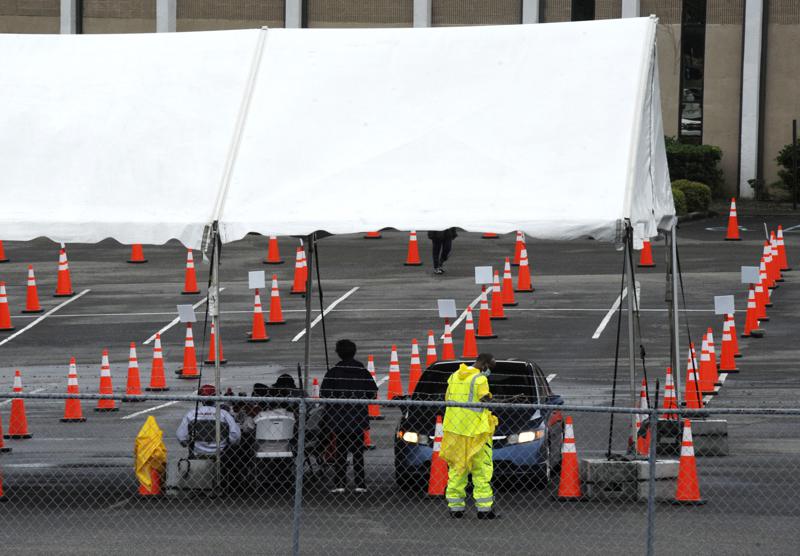
The Alabama NAACP is trying to boost COVID-19 vaccinations among younger people in the state by offering a chance to win $1,000 for getting a shot, a leader said Thursday. With health officials worried that too few young people are getting immunizations, the civil rights organization this week began promoting a program to offer anyone between the ages of 18 and 40 a chance to receive $1,000 for completing the vaccination process between May 1 and June 21. That means getting two shots of the Pfizer or Moderna vaccine or one shot of the Johnson & Johnson dose. “We just keep hearing that the Millennials and the Gen Zers don’t want to get the vaccine, so we’re doing what we can to encourage them to go ahead and get it,” said Bernard Simelton, state president of the NAACP. Entrants have to send a selfie of themselves and their vaccination cards to the organization, and organizers hope they’ll also share the images on social media. “We want them to encourage other young people to get vaccinated,” he said. While 1.1 million people are fully vaccinated in Alabama, that represents only about 20% of the state’s population. After briefly surpassing Mississippi in the rate of vaccination, statistics from the Centers for Disease Control show Alabama is again last in the nation. Health officials initially were worried that Black people distrustful of government health care initiatives wouldn’t get shots, but many did. The counties with the lowest rates of fully vaccinated residents now are primarily white and rural, statistics show. With federal officials considering the possibility of reallocating vaccine doses from states where demand is declining, Gov. Kay Ivey warned this week that Alabama could lose part of its vaccine supply if more people don’t get shots. “Y’all, we want shots in the arms and off the shelf,” she said in a statement. “If you have not made it a priority to schedule a vaccine, I encourage you to go get the shot as soon as you are able.” Republished with the permission of the Associated Press.
Judge orders city to pay legal fees in school fight

A mostly white Alabama city that tried to form its own school system must pay nearly $850,000 to attorneys representing black people who successfully fought the move, a federal judge ruled. U.S. District Court Judge Madeline Haikala ruled Monday that the NAACP Legal Defense Fund and attorney U.W. Clemon were due legal fees and expenses from Gardendale, which she said “acted in bad faith” when it attempted the split, al.com reported. Located north of Birmingham, Gardendale had not filed a response to the decision by Thursday, and an attorney for the city’s school board did not immediately return an email seeking comment. With about 14,000 residents, Gardendale is more than 80 percent white. It is located in Jefferson County, which is about 50 percent white. The city formed its own school board and hired a superintendent in 2014 in an attempt to break away from Jefferson County’s school system. The Legal Defense Fund and Clemon, a former federal judge, claimed the move was an illegal attempt to preserve a white majority in the city’s schools. Gardendale denied that race was a factor, but Haikala and the 11th U.S. Court of Appeals disagreed. Haikala also ruled that Gardendale demonstrated bad faith when it tried to end federal court oversight of Jefferson County schools under a 1971 desegregation agreement. Haikala ordered the city to pay nearly $740,000 in legal fees to the NAACP Legal Defense Fund and Clemon and another $106,400 in expenses. Republished with the Permission of the Associated Press.
The Jim Crow film that just won’t die, “Song of the South”

Racially segregated movie theaters and whites-only water fountains disappeared decades ago after court rulings struck down the legal framework of Jim Crow America, but another element of the era just won’t die: Walt Disney’s 1946 movie “Song of the South.” With racist stereotypes and Old South tropes, the film isn’t available to the millions of subscribers of the company’s new Disney Plus streaming service, and it hasn’t been released in theaters in decades. Yet the movie, still beloved by many, lives on. “Song of the South” is easily viewed on the internet either in whole or in pieces, and numerous websites offer versions of the movie or memorabilia for sale. Animatronic characters and music from the movie are even featured in a ride at Disney World in Orlando, Florida, minus the racist context. The movie — a mix of live action, cartoons and music featuring an old black plantation laborer named Uncle Remus who enchants a white city boy with fables of talking animals — is like a zombie that keeps popping up seven decades after it was first released. While many find it racist and offensive, others see it as endearing. “Yay! Have been looking for a good copy for years, kids really enjoyed it! Thank you,” a reviewer wrote recently on the online marketplace Etsy, where multiple versions of the movie are for sale. Groups including the NAACP protested the film’s initial release, and arts professor Sheril Antonio said the continuing problem with “Song of the South” is that some just don’t see anything wrong with it. “Most of the harm of all of this is not acknowledging our shared history, all the good and bad of it. The harm comes from ignoring it and not talking about it truthfully and fully,” Antonio, a senior associate dean of arts at New York University, said in an interview conducted by email. Released the year after World War II ended, “Song of the South” premiered in Atlanta, where the Civil War epic “Gone With the Wind” made its debut a few years earlier. Set in post-Civil War Georgia, the Disney film featured stories that white newspaper writer Joel Chandler Harris heard from one-time slaves and published starting in 1876, according to The Wren’s Nest, Harris’ one-time home and now a museum in Atlanta. Actor James Baskett was presented an honorary Academy Award for his portrayal of Uncle Remus, but the movie was perhaps best known for its Oscar-winning song “Zip-A-Dee-Doo-Dah.” The tune is part of the soundtrack at Disney World’s Splash Mountain ride, which also features Remus characters including Br’er Rabbit. Yet while Disney Plus added a disclaimer to “Peter Pan,” “Dumbo”” and other vintage movies because they depict racist stereotypes, the company kept “Song of the South” locked away in its vault. Disney last screened the movie in 1986, its 40th anniversary, despite years of complaints that it showed blacks as subservient to whites, and it never released “Song of the South” for home video sales in the United States. Foreign versions of the movie are among the editions available for sale on the internet. “To be honest, I’ve lost track of how many people sell DVD bootlegs now,” said Christian Willis, who has run a website dedicated to the movie for about two decades. Jason Sperb, who wrote a book about the movie and its legacy, said “Song of the South” received a lukewarm reception when it first opened but was a “huge hit” financially when it was released in the 1970s and ’80s. “Disney had become more of a cultural institution by then. All the old films, whether successful or not upon its original release, were now being rebranded as ‘classics,”’ said Sperb, author of “Disney’s Most Notorious Film: Race, Convergence, and the Hidden Histories of Song of the South.” The continuing fascination that some have with the movie is likely more about the fact that Disney made it than its actual contents, he said in an email interview. “I think if anyone else in Hollywood had made that movie it would have been almost completely forgotten about by today except for only the most hardcore animation history buffs who would note in passing its role in helping to shape the possibilities of hybrid animation,” said Sperb. Willis, who runs the “Song of the South” website, said he was enamored with the movie after seeing it as a child in 1986 at age 6. He hopes the movie is released to the public again someday, and in the meantime he plans to keep adding to his online repository about the film. “I think burying history is the wrong approach,” he said. Some have reinterpreted old, racist films in a new way rather than simply screening them in their original format. Antonio, the NYU professor, cited DJ Spooky’s remix of the 1915 movie “Birth of a Nation,” which glorified the early Ku Klux Klan. In “Rebirth of a Nation,” DJ Spooky (whose birth name is Paul D. Miller) trimmed the original film and applied new graphics and music he composed. In a live performance during the 2016 presidential campaign, he spliced together the original film with scenes from the civil rights movement and post-9/11 wars. Antonio said she was “forever changed” by watching “Rebirth.” “As you can see I am an educator, and in these cultural artifacts there is always value,” she said. Republished with the Permission of the Associated Press.
Court says workers can’t sue over blocked minimum wage boost

Fast food workers can’t sue the Alabama attorney general over a 2016 state law that blocked a minimum wage increase in the state’s largest city, a federal appeals court ruled Friday. The 11th U.S. Circuit Court of Appeals sided with the state of Alabama, saying the workers do not have standing to sue over the 2016 state law that prohibited cities from setting their own minimum wage. The lawsuit centers on a 2016 state law passed in response to Birmingham’s attempts to raise the hourly minimum wage. The city of Birmingham planned to raise the minimum wage to $10.10 per hour. Alabama lawmakers responded by swiftly passing a state law that prevented cities from doing so. Fast food workers, the Alabama Chapter of the NAACP and others sued state officials, saying the state law violated the voting rights and civil rights of Birmingham residents. They contended it was racially discriminatory and another example of the majority-white Legislature exerting control over majority-black cities such as Birmingham. The court only ruled that the plaintiffs did not have standing to sue, and not on the other claims. Lawmakers who supported the state law said that they were worried about the impact on businesses and argued that it was important for economic development for the state to have a uniform minimum wage. Alabama has no minimum wage above the federal minimum of $7.25. A group advocating for a higher minimum wage, Fight for $15 and a Union, issued a statement strongly criticizing the decision. “This decision is a disgrace to the rich history of Birmingham, where some of the most consequential struggles of the civil rights movement took place over 50 years ago and where Black, white and brown workers continue to demand justice today,” the statement said. Richard Rouco, an attorney representing plaintiffs in the case said they were disappointed. “The majority opinion makes it more difficult for individuals to vindicate their civil rights,“he wrote in an email. Alabama Attorney General Marshall Steve Marshall said in a statement that he was pleased with the ruling, saying the court “agreed with the state of Alabama that the plaintiffs had no standing to sue the attorney general over their complaints about Alabama’s minimum wage law.” “I also think the substance of the plaintiffs’ challenge lacked merit, but the court withheld judgment on that question because the plaintiffs failed to show that the attorney general ever harmed them,” Marshall said. The decision in favor of Alabama came after a majority of judges on the 11th Circuit withdrew a decision by a three-judge panel of the court that would have allowed the litigation proceed. The court said in January that the case would be heard by all the judges in the circuit. Republished with the Permission of the Associated Press.
3 teachers suspended over text messages leaked online
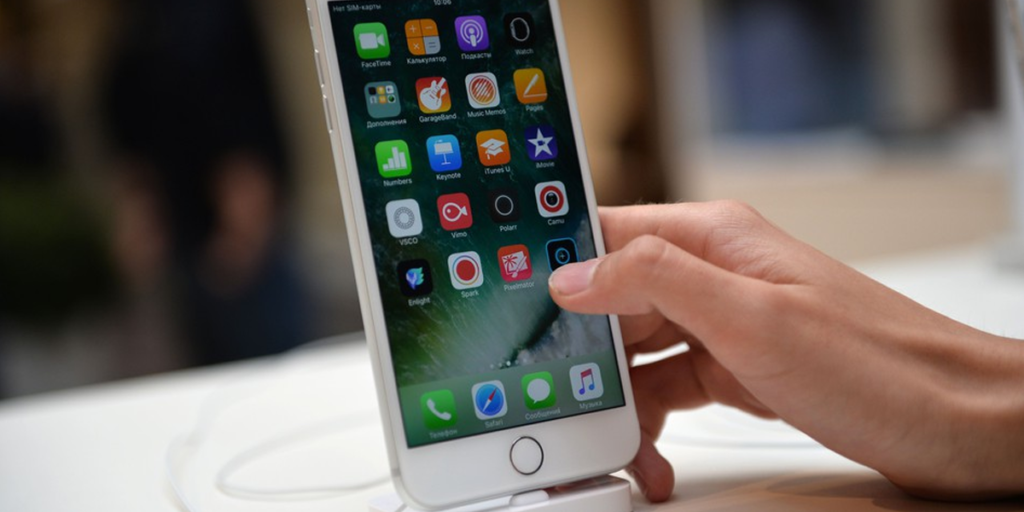
An Alabama school board voted to discipline three teachers accused of sharing offensive text messages about students that were later leaked online. The Houston County School Board voted Wednesday night to approve 10-day, unpaid suspensions for three teachers from Ashford High School, news outlets reported. Some in the audience complained that the punishment wasn’t severe enough. As many as six teachers were suspended with pay earlier after a student used social media to post leaked text messages that included a racial slur and comments about students’ sex lives and intelligence. The suspensions for three teachers followed an investigation by school officials. The Dothan Eagle reported that Superintendent David Sewell recommended the punishment for Tambria McCardle, Kim Worsham and Julee Lasseter, plus systemwide diversity training early next year. Community members filled the board’s meeting room and many said the punishment wasn’t stiff enough. “It was a private conversation, but it was made public. For teachers, adults, to say something like this, you can’t turn a blind eye,” said Franklin Jones, president of the Dothan chapter of the NAACP. “To say it wasn’t serious enough of a violation to terminate them is wrong.” Erica Williams, whose child’s pregnancy was discussed in the teachers’ texts, said she was disappointed in the board’s decision. “I thought they’d be fired,” she said. “They need to be transferred or something.” Rodreshia Russaw, co-director of local advocacy organization “The Ordinary People Society,” said the ’“teachers made a clear point” when they gave the group a name that referred to bad teachers. “This was not a mishap,” she said to the board. “Let’s not forget there was motives and intentions there.” Sewell said he sought the legal advice from the board’s attorney and other education lawyers, and none recommended firing the teachers. The superintendent declined comment on whether the student who posted the leaked teachers’ messages was disciplined, but the sheriff’s office said no charges were planned. Republished with the Permission of the Associated Press.
Governor Kay Ivey doesn’t plan to resign over blackface skit
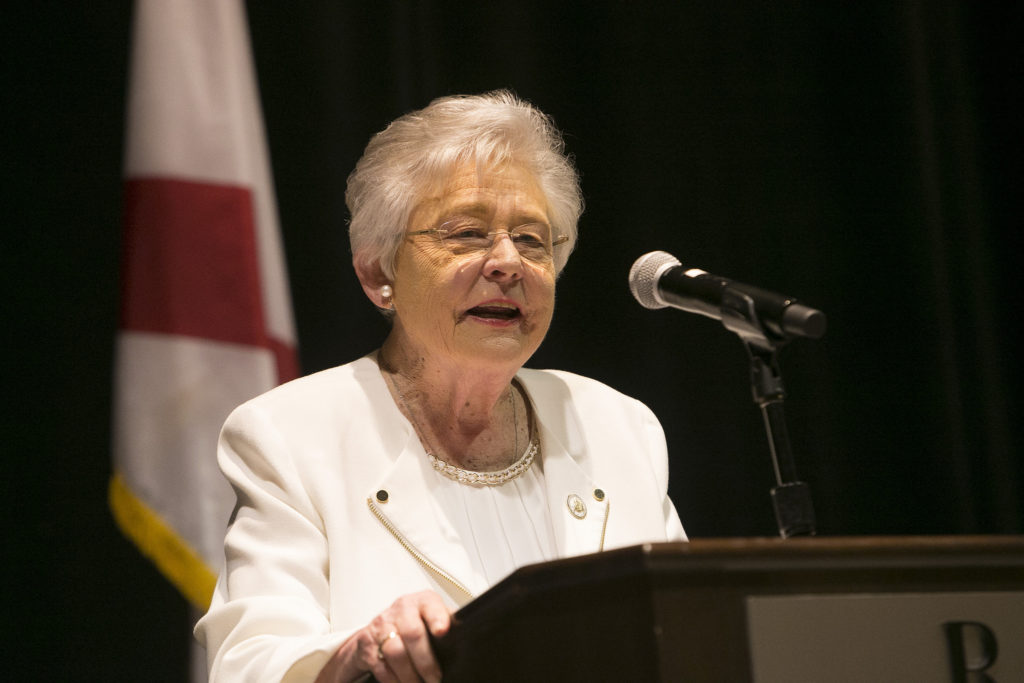
Alabama Gov. Kay Ivey said Tuesday that she should not have worn blackface in a college skit decades ago, but she does not plan to resign over something that happened so long in the past. In her first public appearance since issuing a public apology last week, Ivey, 74, reiterated that she was wrong to appear in the skit over 50 years ago and that it does not reflect who she is today. The Republican governor said she has no plans to quit. “Heavens no, I’m not going to resign. It’s something that happened 52 years ago and I’m not that person. My administration stands on being inclusive and helping people,” the Republican governor said. Ivey last week apologized after a 1967 college radio interview surfaced of her then-fiancé Ben LaRavia describing her wearing “black paint all over her face” in a skit called “Cigar Butts” at skit night at the Baptist Student Union. Her office released the recording after university officials discovered it while working on a project to preserve old university records. Her admission of wearing black face came after she had told The Associated Press in February that she had never done so. Ivey said Tuesday that she doesn’t remember the skit. “I was shocked to hear the tape. I didn’t remember being at the Baptist Student Union in any kind of skit like that for sure. But I’ve apologized for it. I should not have done that. I know it’s important to apologize to the people of Alabama,” Ivey said Tuesday. Ivey’s public apology drew a mixed reaction. The Alabama NAACP on Tuesday repeated a call for Ivey to resign. The group pointed to some of her actions as governor, including signing legislation to protect Confederate monuments and other historic statues from being torn down. “The NAACP believes Governor Ivey needs to do the right thing and resign as Governor and let someone lead the people of Alabama into a brighter and more inclusive future, not the status quo,” Benard Simelton, president of the Alabama NAACP, said in a written statement. The organization said if Ivey is serious about racial reconciliation, she should consider policies such as Medicaid expansion to “level the playing field in areas of education, and healthcare.” Alabama Senate Minority Leader Bobby Singleton, who is African American, said last week that he appreciated Ivey “owning” the incident and apologizing for it. Ivey said Tuesday that she has mostly received positive reactions. Ivey is the latest politician to face scrutiny over wearing blackface decades ago. A racist photo in the medical school yearbook of Virginia Gov. Ralph Northam led to calls for his resignation. Virginia Attorney General Mark Herring also acknowledged wearing blackface in college. The skit, which appeared to have taken place in 1967, came three years after the first African American student entered Auburn and six years after segregationist Gov. George Wallace’s infamous stand in the school house door to try to block the entry of two African American students at the University of Alabama. Republished with the permission of the Associated Press.
Alabama’s method of electing judges has been challenged

A federal judge will hear arguments Wednesday in a voting rights lawsuit challenging Alabama’s system of statewide elections for appellate courts, a practice that has resulted in all-white judges. The 2016 lawsuit contends the method dilutes the voting power of African Americans and results in all-white appellate courts in a state where one in four people is black. The lawsuit was filed by the Alabama State Conference of the NAACP and four black voters. Alabama is asking a judge to uphold the statewide elections. State lawyers said if black candidates have been unsuccessful in recent years, it’s because they are running as Democrats in a red state. Alabama’s appellate courts are currently all-white and all-Republican. There have been three African American judges on the state Supreme Court. Republished with permission of the Associated Press.
Aide says Donald Trump’s critics should focus on problems back home

A top White House aide said Sunday that President Donald Trump, frustrated by the Democrats’ unrelenting investigations and talk of impeachment, swung hard at an influential black Democratic congressman and his Baltimore district because he believes such Capitol Hill critics are neglecting serious problems back home in their zeal to undermine his presidency. Acting chief of staff Mick Mulvaney insisted in two national television interviews that that Trump was not making racist comments when he tweeted that the majority-black district of Rep. Elijah Cummings was a “disgusting, rat and rodent infested mess.” Mulvaney, a former congressman himself, said he understood why some people could perceive Trump’s words as racist. Trump’s repeated weekend attacks on Cummings, the powerful chairman of the House Oversight and Reform Committee, marked the latest rhetorical shot against a prominent lawmaker. Two weeks ago, Trump caused a nationwide uproar with racist tweets directed at four Democratic congresswomen of color as he looked to stoke racial divisions for political gain heading into the 2020 election. Mulvaney said Trump’s words were exaggerated for effect — “Does the president speak hyperbolically? Absolutely” — and meant to draw attention to Democratic-backed investigations of the Republican president and his team in Washington. “Instead of helping people back home, they’re focusing on scandal in Washington D.C., which is the exact opposite of what they said they would do when they ran for election in 2018,” Mulvaney said, pointing at Democrats who now control the House. He asserted that Trump’s barbs were a reaction to what the president considered to be inaccurate statements by Cummings about conditions in which children are being held in detention at the U.S.-Mexico border. At a hearing last week, Cummings accused a top administration official of wrongly calling reports of filthy, overcrowded border facilities “unsubstantiated.” “When the president hears lies like that, he’s going to fight back,” Mulvaney said.Trump’s tweets Saturday charged that Cummings’ district, which includes Johns Hopkins Hospital, the Social Security Administration and the national headquarters of the NAACP, is “considered the worst run and most dangerous anywhere in the United States.” Condemnation followed from Democrats over the weekend, including some of the party’s presidential candidates. Statements from a spokesman for Maryland’s Republican governor and from the lieutenant governor defended Cummings’ district and its people. Trump, unbowed, resumed the verbal volleying Sunday: “There is nothing racist in stating plainly what most people already know, that Elijah Cummings has done a terrible job for the people of his district, and of Baltimore itself. Dems always play the race card when they are unable to win with facts. Shame!” The president has tried to put racial polarization at the center of his appeal to his base of voters, tapping into anxieties about demographic and cultural changes in the nation in the belief that the divided country he leads will simply choose sides over issues such as race.Mulvaney argued that Trump would criticize any lawmaker, no matter the person’s race, in a similar way if Trump felt that individual spoke unfairly about the president’s policies. He volunteered that if Rep. Adam Schiff, the California Democrat who leads the House Intelligence Committee, had made the same remarks as Cummings, Trump would have pushed back. “It has zero to do with the fact that Adam is Jewish and everything to do with Adam would just be wrong if he were saying that,” Mulvaney said. “This is what the president does. He fights and he’s not wrong to do so.” To Mulvaney, Trump was “right to raise” the challenges faced in Cummings’ district at the same time that Cummings and other Democrats are “chasing down” the Russia investigation undertaken by Robert Mueller and pursuing “this bizarre impeachment crusade.” Nonetheless, the chief of staff said he understood why some people view Trump’s comments as racist, “but that doesn’t mean that it is racist.” “The president is pushing back against what he sees is wrong,” he added. “It’s how he’s done it in the past and he’ll continue to do it in the future.” Cummings is leading multiple investigations of the president’s governmental dealings. In his direct response to Trump on Twitter, Cummings said: “Mr. President, I go home to my district daily. Each morning, I wake up, and I go and fight for my neighbors. It is my constitutional duty to conduct oversight of the Executive Branch. But, it is my moral duty to fight for my constituents.” Cummings has also drawn the president’s ire for investigations touching on his family members serving in the White House. His committee voted along party lines Thursday to authorize subpoenas for personal emails and texts used for official business by top White House aides, including Ivanka Trump and her husband, Jared Kushner. Democratic presidential candidate Julián Castro said Trump was engaging in “racial priming.” “Using this language and taking actions to try and get people to move into their camps by racial and ethnic identity. That’s how he thinks he won in 2016 and that’s how he thinks he’s going to win in 2020,” Castro said. Rarlier this month, Trump drew bipartisan condemnation following his call for Democratic Reps. Ilhan Omar of Minnesota, Alexandria Ocasio-Cortez of New York, Ayanna Pressley of Massachusetts and Rashida Tlaib of Michigan to get out of the U.S. “right now.” He said that if the lawmakers “hate our country,” they can go back to their “broken and crime-infested” countries. All four lawmakers of color are American citizens and three of the four were born in the U.S. The House later voted largely along party lines to condemn his “racist comments.”Mulvaney claimed that if he had focused on investigations when he was in Congress rather than poverty and other issues, “I’d get fired.” More rural than Cummings’ district, Mulvaney’s former district in South Carolina has a lower per-capita income than the one targeted by Trump, and the poverty rates are roughly the same. Cummings’ district is about 55 percent black and includes a large portion of Baltimore. The city has struggled with
2020 election to test if democrats can draw multiracial coalition
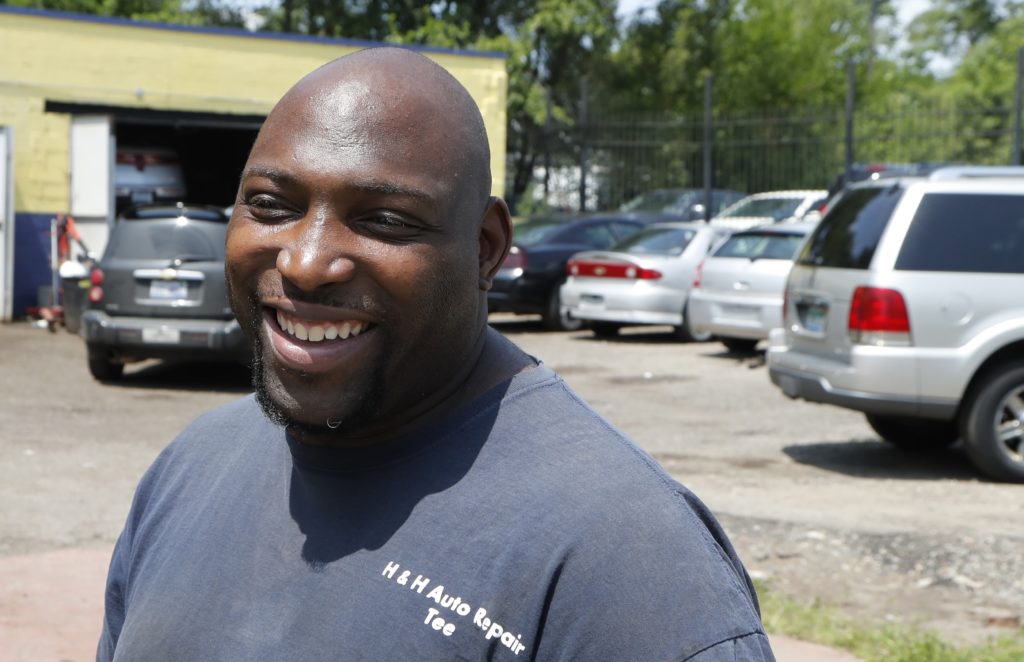
When Barack Obama was on the ballot in 2008 and 2012, there was no question that Terrance Holmes would vote for the first black president. But as he helped fix cars this week at a repair shop on Detroit’s west side, he recalled his ambivalence about the 2016 campaign. “I just didn’t feel no reason to” vote, said Holmes, who is black and holds a second job at an auto parts factory. The 34-year-old feels differently now as another election season begins. He hasn’t paid much attention to the early Democratic primary and didn’t know that two high-profile black candidates are running. But he vowed to help vote President Donald Trump out of office in 2020, regardless of which Democrat emerges as his challenger. The most important thing, Holmes said, is “to get Trump out.” The upcoming presidential campaign offers a critical test for Democrats of whether they can ever again rely on the multiracial coalition that helped propel Obama to the White House twice. Young black voters like Holmes are critical to that effort, especially in states like Michigan, which Democrats lost by just over 10,000 votes in 2016, ceding a state that hadn’t backed a Republican since 1988. Reclaiming it, along with Pennsylvania and Wisconsin, would put Democrats on a firmer path to the presidency. Black voters are the base of the Democratic Party and its most consistent and loyal voting bloc. Black people voted in record numbers for Obama in 2008 and 2012 and overwhelmingly supported Hillary Clinton in 2016. But nationally, the African American turnout rate dropped 7 percentage points in 2016 from its record high during Obama’s 2012 reelection, according to U.S. Census Bureau data. Other groups did not see a comparable decrease — white turnout increased slightly while Latinos held steady. Bernard Fraga, a political science professor at Indiana University, wrote a book on turnout last year. He attributes the drop in black voter turnout to several factors, including Russian interference in the election, tactical errors by Clinton’s Democratic presidential campaign and less enthusiasm for voting for someone other than Obama. But he said the most important thing Democratic candidates can do is prove to black voters that they’ll work for their support. “It’s not one single thing, but what it points to is Democrats can’t just take black turnout for granted,” Fraga said. Democrats insist they’ll reverse the decline in 2020. They’re already spending significant time in Michigan, holding their second set of presidential debates next week in Detroit. Many candidates were in town on Wednesday to address the NAACP’s annual convention, where they outlined their agendas for black communities. Several contenders are making explicit appeals to black voters and blasting their rivals as weak on issues related to civil rights. California Sen. Kamala Harris, one of the two leading black candidates in the contest, slammed former Vice President Joe Biden during the first debate for his opposition to busing in the 1970s. The other black candidate, New Jersey Sen. Cory Booker, is warning that the party needs a nominee who can turn out minorities who skipped 2016. Vermont Sen. Bernie Sanders, who won the support of many younger black Democrats during the 2016 primary, has stepped up his references to racial disparities. Other candidates speak regularly of criminal justice reform, the racial wealth gap and high mortality rates among pregnant black women. Not to be outdone, Trump has attempted appeals to black voters. Even as he ignited a firestorm this month with racist tweets targeting four congresswomen of color, he frequently touts the black unemployment rate that has declined under his administration and his support of a criminal justice overhaul bill. Activists worry that Democrats still aren’t doing enough to appeal to a minority population that remains alienated and demoralized, with unemployment rates higher than that of whites and continuing cases of police killing unarmed black men. “Candidates have to understand the fault lines that exist within the black electorate,” said Adrianne Shropshire of BlackPAC, which works on turning out African American voters. “The Democratic underperformance that we’ve seen can be explained in many ways by millennial dissatisfaction.” Younger black voters, like young people overall, aren’t as reliable as their older counterparts. But Michigan illustrates their importance. Based on data from state voter records, Fraga estimates a 12 percent drop in black voter turnout in Michigan in 2016 compared with 2012, the steepest decline in African American voting performance in the nation along with neighboring Wisconsin. Fraga said the falloff was disproportionately among younger and male voters. Democrats found some promising signs in Michigan last year. The party clinched the governor’s mansion and attorney general’s office and netted two House seats. Democratic groups say their internal data suggests some black voters who didn’t participate in 2016 showed up to the polls in 2018. In Detroit, 28,000 more ballots were cast than in the prior midterm election of 2014. Lavora Barnes, the chairwoman of Michigan’s Democratic Party, said the party started contacting black voters shortly after the 2016 election, knowing it had to invest more in turning them out. It also has had to tailor a message to younger voters whose political awareness started with Obama’s 2008 campaign. “It is a very different world where you grew up with Barack Obama, and then you saw your country turn on you and elect Donald Trump,” Barnes said. She tells younger black voters: “This is the moment you fight.” Democrats remain nervous about that fight. Priorities USA, a major Democratic campaign group, warns that it has found African Americans remain less motivated about 2020 than other Democratic voters. Branden Snyder was the deputy field director of Democrats’ 2016 Michigan campaign and now runs a group that tries to boost minority turnout in Detroit. He’s also worried. “The slice that isn’t being engaged by the Democrats is non-college black men. The people who are talking about this are the RNC,” Snyder said, referring to the Republican National Committee. “The RNC and Trump are coming and
Lawsuit challenges Alabama’s method of electing judges
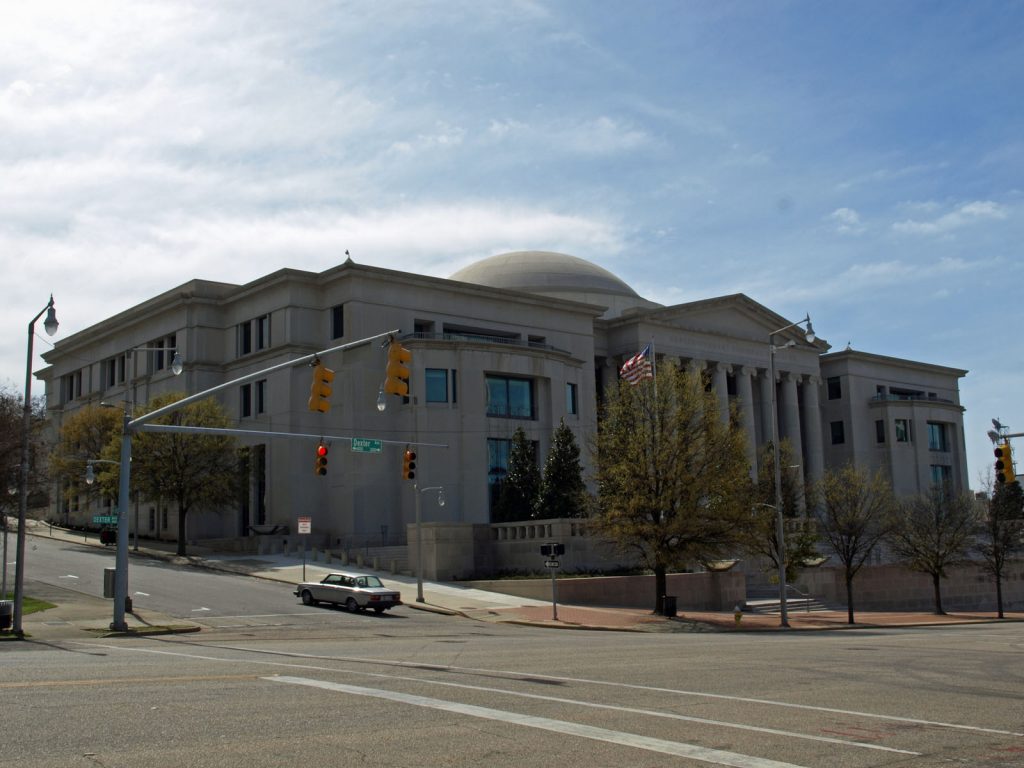
Alabama’s practice of picking its appellate judges in statewide elections results in all-white courts in a state where one in four people is African-American, civil rights activists claim in a lawsuit that will soon come before a federal judge. Oral arguments are scheduled next month in Montgomery in the 2016 lawsuit filed by the Alabama State Conference of the National Association for the Advancement of Colored People (NAACP) and four black voters. The lawsuit contends the at-large method of electing judges violates the Voting Rights Act and the U.S. Constitution because it dilutes the voting power of African Americans in the state and keeps them from electing their preferred candidates. “Today, in 2019, all 19 of Alabama’s most powerful judges are white. This is the colorline in Alabama: a racially segregated judiciary where Blacks can be elected only to lower court positions,” lawyers for plaintiffs in the case wrote in a brief filed Monday. Plaintiffs are asking a judge to order the state to switch to elections by districts, or another method. The state will file its closing brief later this month. In earlier court filings the state argued that judges should be accountable to all Alabama voters, and not just certain districts, and that political party preference, not race, is the overriding factor. Plaintiffs argued that Alabama’s history “shows that its shift to one-party Republican control was driven principally by race.” The oral arguments next month will be the culmination of the lawsuit filed in 2016. A federal judge heard evidence in a bench trial that ended in November. Alabama’s appellate judges run in statewide partisan elections, just like the governor, attorney general and other top officials. The appellate courts in Alabama are all-white and all-Republican and have been for years. There has never been a black judge on the criminal and civil appeals courts. There have been three black judges on the Alabama Supreme Court but all were first appointed by governors. “No African American has won an election for the Alabama Supreme Court without first being appointed to office by the Governor_and that has only occurred three times in almost 200 years,” lawyers for plaintiffs wrote in their closing brief. The lawsuit is similar to one in Texas filed on behalf of several Hispanic voters. A judge in September ruled in favor of the state in that case. Republished with the permission of the Associated Press.
NAACP suspends Hezekiah Jackson, Birmingham metro president pending investigation
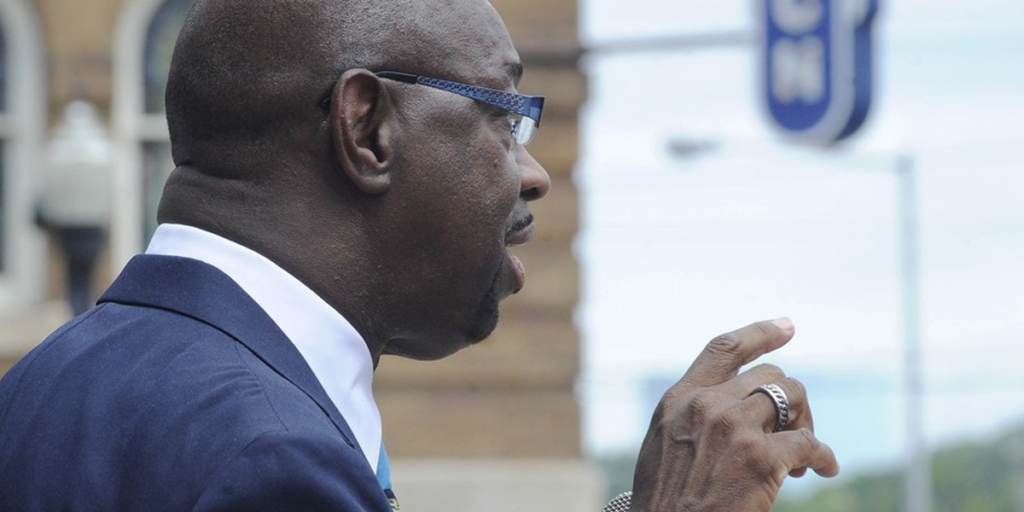
The national office of the National Association for the Advancement of Colored People (NAACP) — the nation’s foremost civil rights organization — announced Wednesday the suspension of NAACP Metro-Birmingham Branch President Hezekiah Jackson pending an investigation into allegations that he advised homeowners not to have their soil tested by the EPA for potentially deadly toxins, and that he accepted cash payments for engaging in this activity. On Sept. 7, NAACP President and CEO Derrick Johnson issued a letter to Jackson notifying him that his membership in the NAACP and his leadership of the Branch were being immediately suspended. According to the national organization, Jackson was directed to immediately cease holding himself out as a member of the Association and as President of the Branch. Jackson released a statement Wednesday night in response to the claims: After 20 years as a Black openly gay president of the Metro Birmingham NAACP and Chief Volunteer Officer, I have had to navigate the hostile waters of Sexual Orientation Discrimination for most of my life. I welcome the opportunity for a full hearing on this matter for which I expect to be fully exonerated. No one has produced any proof of my emphatically saying to anyone “DO NOT HAVE YOUR SOIL TESTED” or me being compensated in cash or otherwise to which I testified under oath before the Grand Jury in July, 2017. Once I receive the notice I will answer and allow the due process to run it’s course; however, in the meantime I will remain at 1520 4th Ave. No. Birmingham, Alabama (former home to the NAACP) as my launching location for my new organization “Better Environment and Mo Justice” and to complete my memoirs, “To Kill the Bold Black Gay Boi” (A TELL ALL). I will turn my attention to unimpeded empowerment for myself and my people. I am at perfect peace and thank all those who have stood with me over the years and those who continue to do so. Jackson claims he has not received a letter from the NAACP regarding his suspension.
White House condemns ruling on Donald Trump’s ‘Dreamers’ program
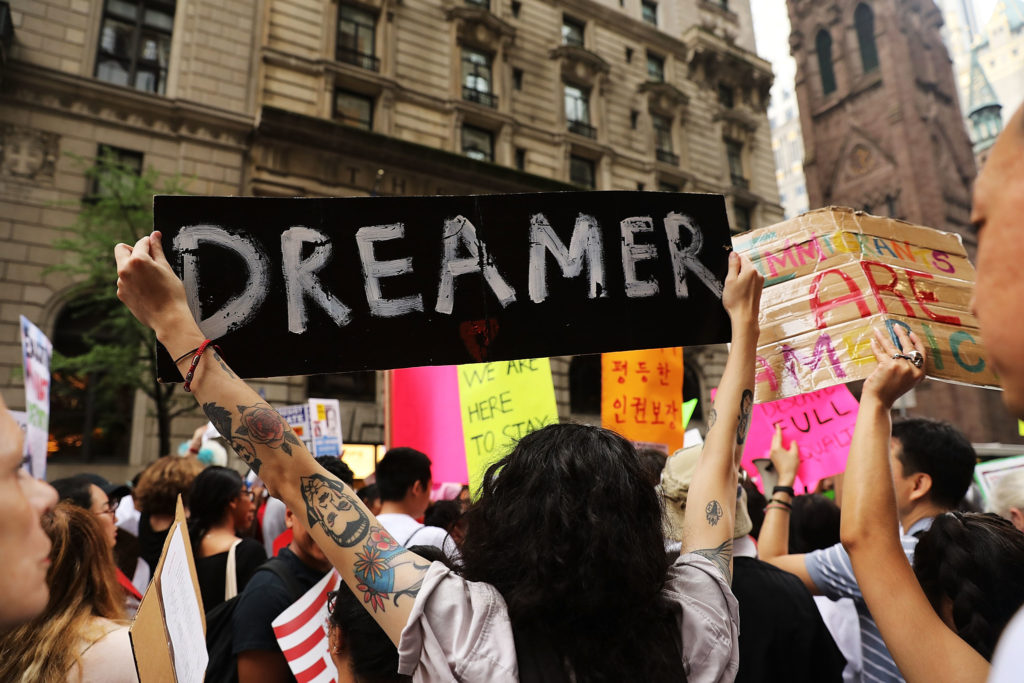
The White House on Wednesday sharply criticized a federal judge’s ruling that the Trump administration must resume a program that has shielded hundreds of thousands of young immigrants from deportation. While the government has 90 days to restate its arguments before the order takes effect, presidential press secretary Sarah Huckabee characterized the ruling as “good news” for smuggling organizations and criminal networks and “horrible news for our national security.” If Tuesday’s ruling by U.S. District Judge John D. Bates in Washington survives the three-month reprieve, it would be a new setback for the Trump team because it would require the administration to accept requests from first-time applicants for the Obama-era program. Two nationwide injunctions earlier this year applied only to renewal requests for the Deferred Action for Childhood Arrivals program. DACA recipients are commonly referred to as “Dreamers,” based on never-passed proposals in Congress called the DREAM Act that would have provided similar protections for young immigrants. Siding with Princeton University and the NAACP, Bates said the administration’s decision in September to phase out the program over six months relied on “meager legal reasoning.” He invited the Department of Homeland Security to try again, “this time providing a fuller explanation for the determination that the program lacks statutory and constitutional authority.” The judge wrote that the administration’s explanation was “particularly egregious” because it didn’t mention that many of the hundreds of thousands covered by the program had obtained jobs and pursued education based on the assumption that they would be allowed to renew. DHS didn’t immediately respond to a request for comment. The administration contends the program started in 2012 is a misuse of executive power and that it had to act because Texas and other states threatened to sue. In January, U.S. District Judge William Alsup in San Francisco ruled that the administration failed to justify ending the program; his nationwide injunction forced the administration to resume accepting renewal requests within a week. A federal judge in New York issued a similar ruling in February; a judge in Maryland sided with the administration. The Supreme Court in February denied the administration’s unusual request to leapfrog appeals courts and take on Alsup’s injunction, ensuring that DACA would stay in effect for the time being. The 9th U.S. Circuit Court of Appeals put its review of Alsup’s decision on a fast track, but legal experts don’t expect a decision until June at the earliest. From there, it is expected to go to the Supreme Court, which may not rule until the spring of 2019. The administration could appeal immediately Bates’ ruling or try again with Bates in the 90-day window he gave. Consolidating the DACA challenges into a single case is a possibility, said Stephen Yale-Loehr, a professor of immigration law practice at Cornell University. “It’s complicated now because you have these different cases,” Yale-Loehr said. Nearly 690,000 people were enrolled when the Trump administration said it was ending the program, and 8 out of 10 were from Mexico. To qualify, they needed to have arrived before they turned 16, been younger than 31 in June 2012, completed high school or served in the military, and had clean criminal records. The two-year-permits are subject to renewal. Yale-Loehr estimates that tens of thousands of people who meet the criteria but never applied could benefit from Bates’ ruling. The NAACP, joined by two major labor unions, sued the administration in September. Princeton, joined by Microsoft Corp. and a student, followed in November. Bates, an appointee of President George W. Bush, combined the two cases. Princeton President Christopher L. Eisgruber said he was “delighted.” “While the decision does not fully resolve the uncertainty facing DACA beneficiaries, it unequivocally rejects the rationale the government has offered for ending the program and makes clear that the (Department of Homeland Security) acted arbitrarily and capriciously,” he said. Microsoft’s president, Brad Smith, said he hoped the ruling would motivate Congress to deliver a legislative fix. Bradford M. Berry, NAACP’s general counsel, called the ruling “a major win for advocates for justice and a compassionate democracy.” Republished with the permission of the Associated Press.


